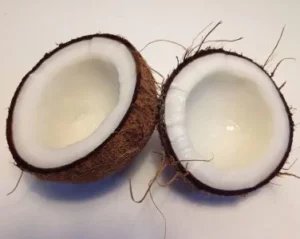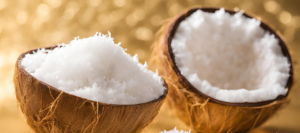Exporting Indian Coconut Traditions: Discover the Cultural Heritage
India is known for its cultural heritage and diversity, and one of the significant elements of this heritage is the coconut. With its numerous uses and deep-rooted significance in various traditions, the Indian coconut has become a sought-after export commodity. In this article, we will explore the cultural heritage of Indian coconuts and the exporting traditions associated with them.
The Versatile Indian Coconut
Coconuts are not only a delicious tropical fruit but also a versatile ingredient used in different aspects of daily life. Indian coconuts are especially prized for their unique flavor, quality, and nutrient-rich composition. From cooking to skincare, coconuts play an essential role in Indian households.
Culinary Delights
In Indian cuisine, coconuts are the secret ingredient that adds depth and richness to dishes. Whether it is coconut milk, coconut oil, or shredded coconut, these ingredients are integral to many Indian recipes. Coconut chutney, coconut-based curries, and sweet coconut desserts are examples of the culinary wonders that can be created using Indian coconuts.
Medicinal Properties
Apart from its culinary uses, the coconut also offers various health benefits. Traditionally, different parts of the coconut tree have been used in Ayurvedic medicine for centuries. Coconut oil is known for its moisturizing and nourishing properties, making it an essential ingredient in skincare products. Furthermore, coconut water is a natural electrolyte that keeps the body hydrated and energized.
Spiritual Significance
In Indian culture, coconuts hold great spiritual significance. They are often used in religious rituals and ceremonies. The breaking of a coconut symbolizes the breaking of the ego, offering oneself to a higher power. Coconuts are also considered as auspicious items and are frequently offered as a mark of devotion in temples and during festivals.
Exporting Indian Coconut Traditions
The rich cultural heritage and versatile nature of Indian coconuts have led to their widespread demand across the globe. India has emerged as a leading exporter of coconuts and coconut byproducts, catering to the diverse needs of customers worldwide. The exporting traditions associated with Indian coconuts carry forward years of expertise and craftsmanship.
Quality Assurance
Indian coconut exporters focus on maintaining high-quality standards to meet international market demands. The coconuts go through rigorous quality checks to ensure freshness, size, weight, and taste. These quality assurance measures help build trust among customers, making Indian coconuts a preferred choice in the global market.
Sustainable Farming Practices
Sustainability is at the core of Indian coconut farming practices. Farmers follow organic and eco-friendly farming methods, ensuring that the coconuts are grown without the use of harmful chemicals or pesticides. This commitment to sustainable agriculture not only protects the environment but also enhances the nutritional value and taste of the exported coconuts.
Farm-to-Table Approach
To maintain the freshness and quality of Indian coconuts during export, a farm-to-table approach is adopted. Every step, from harvesting to packing and transportation, is carefully monitored. Prompt processing after harvest ensures that the exported coconuts reach their destination in excellent condition, preserving their natural flavor and nutrients.
Strengthening Trade Relationships
Indian coconut exporters actively engage in building strong trade relationships with buyers worldwide. Participating in international trade fairs, exhibitions, and business forums allows exporters to showcase the uniqueness of Indian coconuts and establish long-term partnerships. This collaborative approach fosters cross-cultural exchange and a deeper understanding of Indian coconut traditions.
Conclusion
Exporting Indian coconut traditions is not just about supplying a commodity; it is about sharing a cultural heritage. The versatility, spiritual significance, and sustainable farming practices associated with Indian coconuts make them highly valued across the globe. As we continue to cherish and export these traditions, the Indian coconut industry plays a significant role in promoting cultural diversity and fostering global connections.





